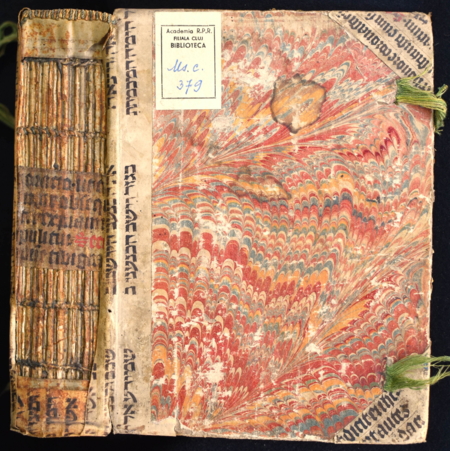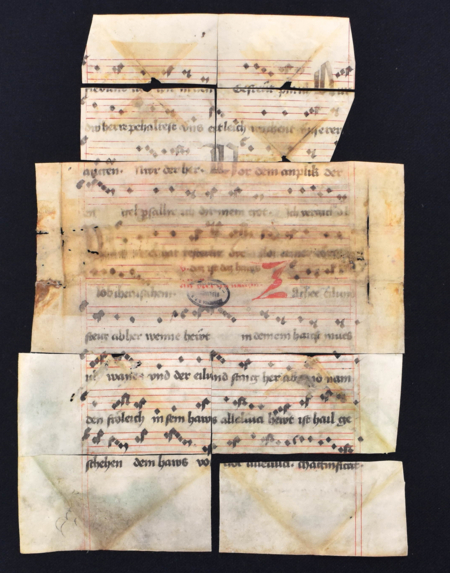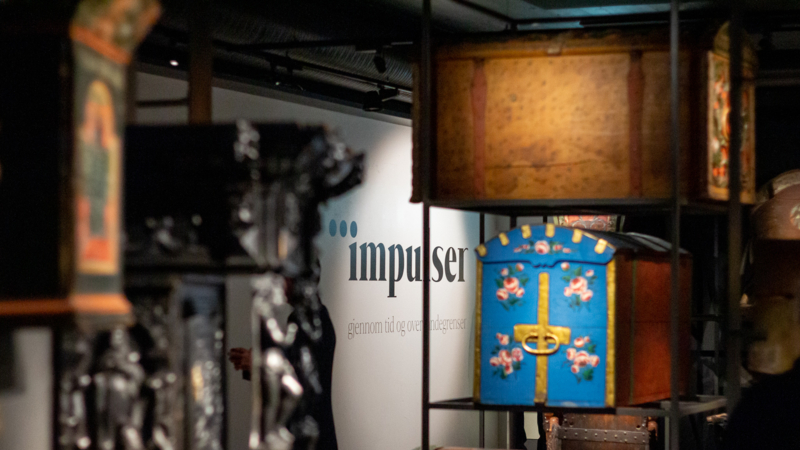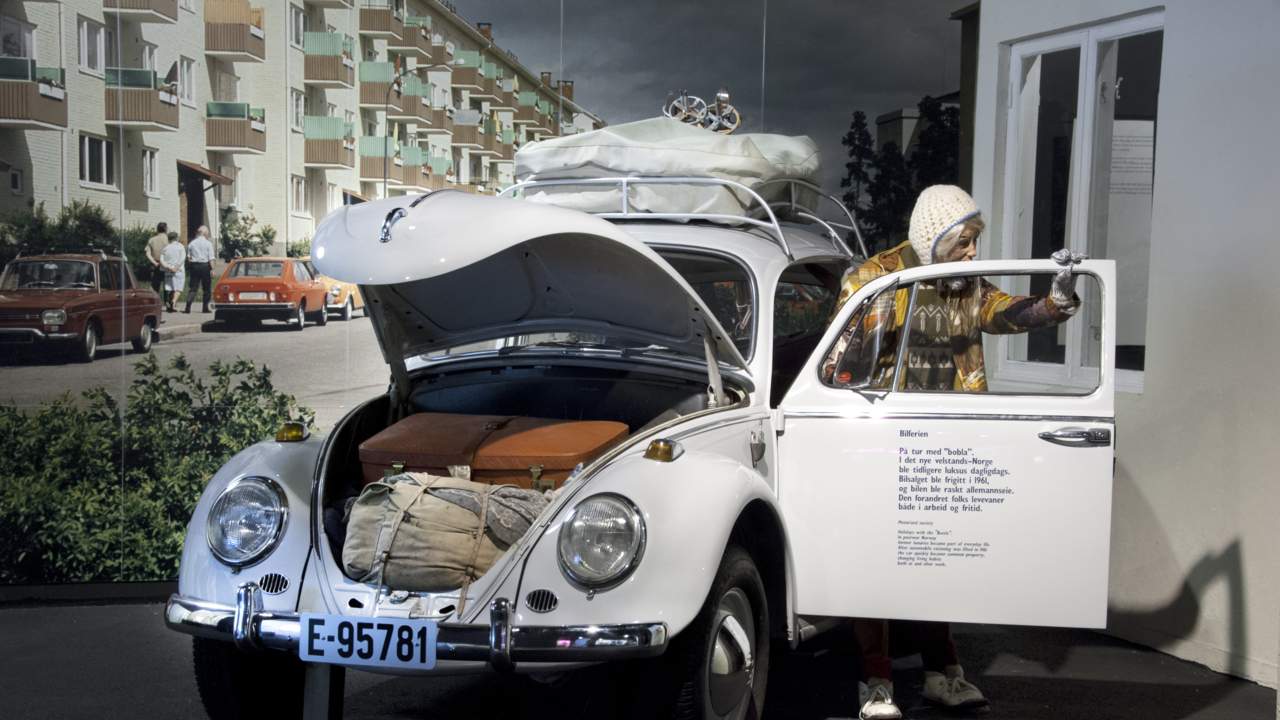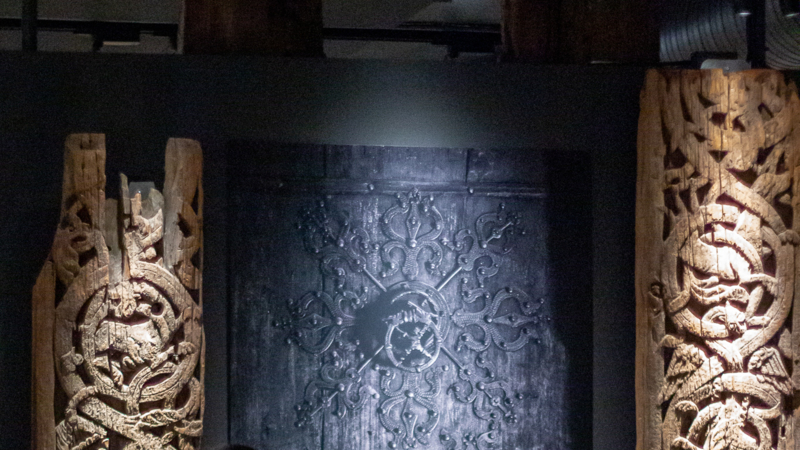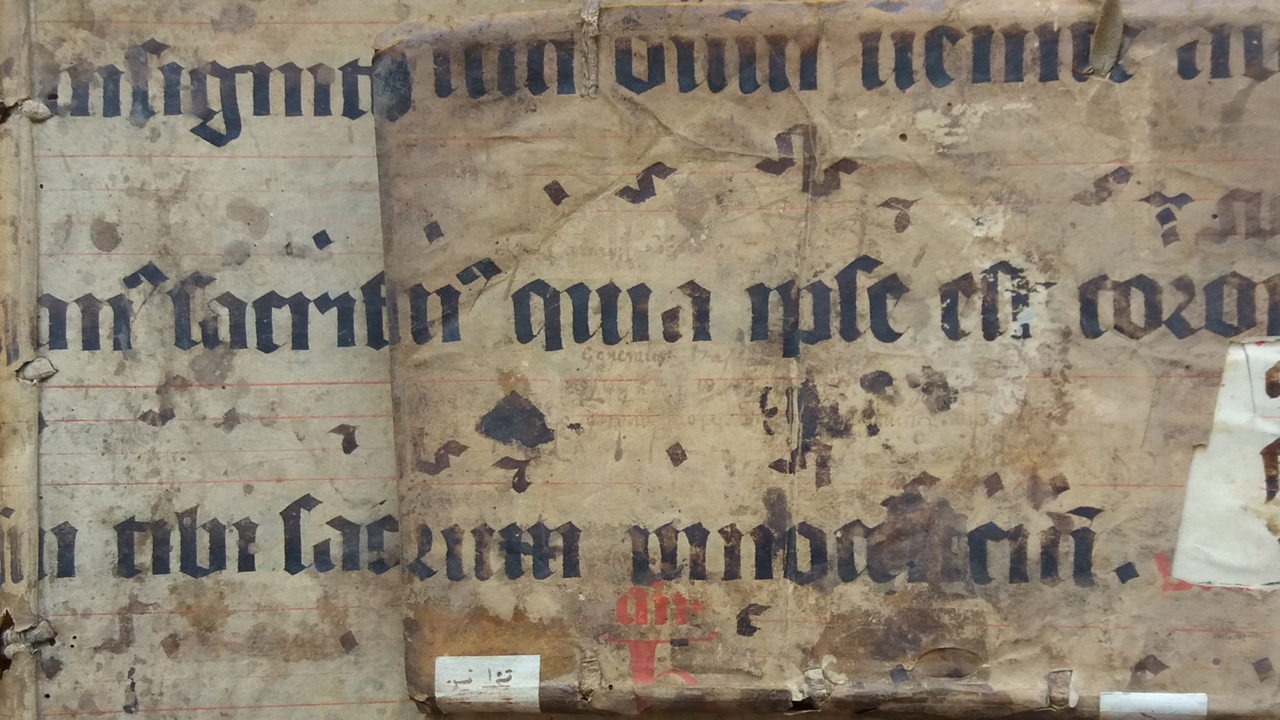
A Transylvanian Puzzle
August 24 2022–April 9 2023
A mini exhibition on how medieval book collections in Romania are restored using fragments of book pages.
Due to massive destruction in modern times, little of the medieval book collections in Transylvania in Romania are available for our time.
The project "Fragmed - a Transylvanian Puzzle" has done something about this, by recovering fragments of book pages and restoring, digitizing, cataloguing, and reconstructing historical book collections from the region.
Fragments recovered
In the Middle Ages, parchment, which is cleaned and dried leather, was the common material for more important handwriting. Medieval parchments were later reused for binding books and manuscripts in the 15th and 16th Century. By searching and analyzing the book covers of these newer books and manuscripts, pieces of the oldest books could be found again. These fragments are the starting point for the exhibition.
The exhibition consists of posters and a film showing how fragments of parchments have been recovered in book covers. Through this work under the auspices of the project "Fragmed - a Transylvanian Puzzle", new puzzle pieces have been added to the history of books, crafts and the history of religion and knowledge.
The fragments are digitally available on the website Fragmentarium, University of Freibourg, Switzerland.
Parchment
The exhibition also shows how a leather is buckled up to become a parchment, and thus a substrate for handwriting. This parchment is produced by tanner Sofie Kleppe, who is a research fellow at the Norwegian Craft Institute at Maihaugen.
In the exhibition Impulses you can see an example of what handwriting on parchment can look like. Here is exhibited a "leather letter" from 1330 that has belonged to the farm Jørstad.
Fragmed – a Transylvanian Puzzle
In order to give the Romanian manuscript fragments international visibility, the Centre for Manuscript Studies at the University of Cluj and the Academy Library in Cluj have collaborated with Norwegian and Swiss partners in the project "Fragmed - a Transylvanian Puzzle". The project is recognized by the Romanian Ministry of Culture and financed by EEA grants from Norway, Iceland, and Liechtenstein under the Ro-Culture programme. Arts Council Norway is the Norwegian programme operator for Ro-Culture. Bjerkaker LearningLab is a Norwegian partner, and Maihaugen has organized the exhibition.

